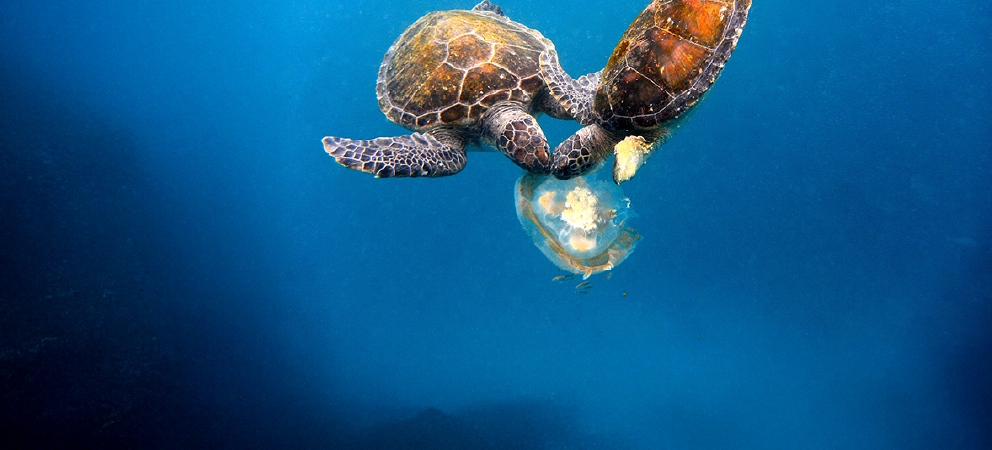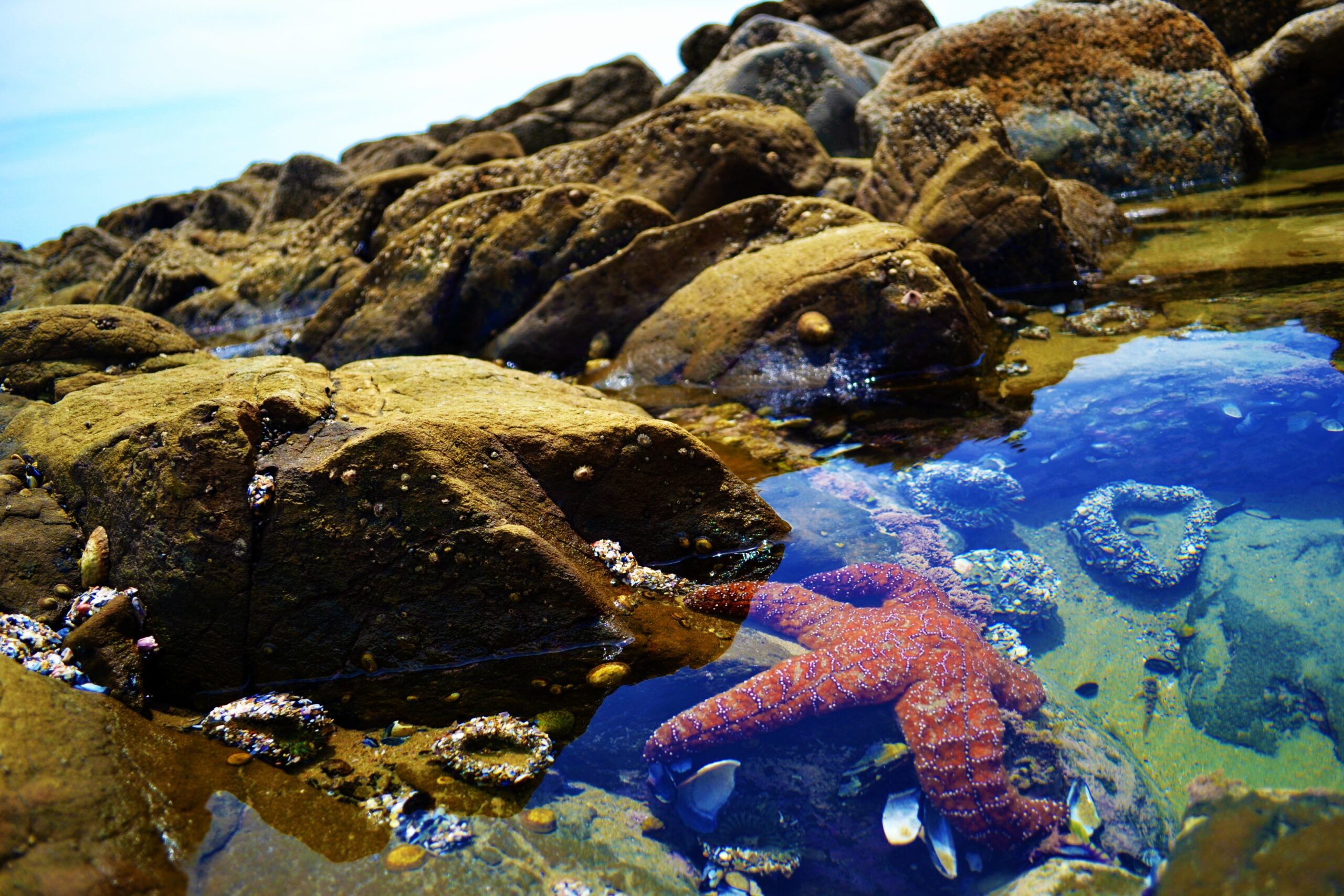Display the Presentation: Agree or disagree? Read the slide to the children. Instruct them to discuss the statement with their partner and decide whether they agree or disagree.
Learning objective
Working scientifically
- To report on changes to ocean numbers.
Success criteria
Working scientifically
- I can describe the role of a marine biologist.
- I can tally the number of living things found in the ocean.
- I can record data as a pictogram.
- I can compare two sets of data and summarise my findings.
National curriculum
Science
Plants
Pupils should be taught to:
- Identify and name a variety of common wild and garden plants, including deciduous and evergreen trees.
Animals, including humans
Pupils should be taught to:
- Find out about and describe the basic needs of animals, including humans, for survival (water, food and air).
Living things and their habitats
Pupils should be taught to:
- Identify that most living things live in habitats to which they are suited and describe how different habitats provide for the basic needs of different kinds of animals and plants, and how they depend on each other.
- Identify and name a variety of plants and animals in their habitats, including microhabitats.
- Describe how animals obtain their food from plants and other animals, using the idea of a simple food chain, and identify and name different sources of food.
Working scientifically
Pupils should be taught to use the following practical scientific methods, processes and skills:
- Asking simple questions and recognising that they can be answered in different ways.
- Observing closely, using simple equipment.
- Performing simple tests.
- Using their observations and ideas to suggest answers to questions.
- Gathering and recording data to help in answering questions.
Cross-curricular links
English
Spoken language
Pupils should be taught to:
- Listen and respond appropriately to adults and their peers.
- Ask relevant questions to extend their understanding and knowledge.
- Articulate and justify answers, arguments and opinions.
- Give well-structured descriptions, explanations and narratives for different purposes, including expressing feelings.
- Maintain attention and participate actively in collaborative conversations, staying on topic and initiating and responding to comments.
- Use spoken language to develop understanding through speculating, hypothesising, imagining and exploring ideas.
- Participate in discussions, presentations, performances, role play, improvisations and debates.
- Gain, maintain and monitor the interest of the listener(s).
- Consider and evaluate different viewpoints, attending to and building on the contributions of others.
- Select and use appropriate registers for effective communication.
See National curriculum - English - Key stages 1 and 2.
Mathematics
Number – number and place value
Pupils should be taught to:
- Count to and across 100, forwards and backwards, beginning with 0 or 1, or from any given number.
- Identify and represent numbers using objects and pictorial representations including the number line, and use the language of: equal to, more than, less than (fewer), most, least.
- Read and write numbers from 1 to 20 in numerals and words.
See National curriculum - Mathematics - Key stages 1 and 2.
Geography
Human and physical geography
Pupils should be taught to:
- Identify seasonal and daily weather patterns in the United Kingdom and the location of hot and cold areas of the world in relation to the Equator and the North and South Poles.
- Use basic geographical vocabulary to refer to key physical features, including: beach, cliff, coast, forest, hill, mountain, sea, ocean, river, soil, valley, vegetation, season and weather.
See National curriculum – Geography - Key stages 1 and 2.
British values
- Mutual respect.
See Promoting fundamental British values as part of SMSC in schools (non-statutory advice) – contains public sector information licensed under the Open Government Licence v2.0.
Before the lesson
Check all images, videos, links and presentation slides are suitable for your class.
- Presentation: Agree or disagree?
- Presentation: Recording living things.
- Audio: A message from Marlin.
- Audio: Voicemail message.
- Access to a large open space, such as a playground or hall.
- Sticky tack or bean bags to hold down the Resource: Ocean observations.
- Some real litter, such as netting and carrier bags, to be identified in the mock ocean habitat (optional – see Main event).
- A device for recording speech (optional – see Adaptive teaching).
- The book ‘Secrets of the Sea: The Story of Jeanne Power, Revolutionary Marine Biologist’ by Evan Griffith (optional – see Attention grabber).
- Link: Assessment – Science Y1/2 (A): Ocean protectors (optional – see Wrapping up).
Print in advance of the lesson.
Subject knowledge
This lesson revises subject knowledge from the units Science, Year 1/2 (A), Plants: Introduction to plants, Science, Year 1/2 (A), Living things: Habitats, Science, Year 1/2 (A), Animals, including humans: Life cycles and health and Science, Year 1/2 (A), Plants: Plant growth. Find any associated misconceptions in the unit lessons.
Lesson organisation
- Distribute the Resource: Ocean observations around a large open space. Fix in place with bean bags or sticky tack to prevent them from blowing away.
- Real litter could be added to the setup as a discussion point for factors that may be affecting the habitat.
- Count the resources used outdoors (including purposeful litter) in and out to ensure they do not impact the space beyond the lesson.
Lesson plan
1: Recap and recall
Presentation: Agree or disagree?
Take feedback.
The children may suggest:
- Some scientists work in laboratories with chemicals and wear white lab coats.
- There are lots of different types of scientists and not all of them do experiments wearing lab coats.
- Some scientists work outdoors and some do not work with chemicals at all.
2: Attention grabber
Remind the children that they have previously looked at the work of a scientist in Science, Year 1/2 (A), Plants: Introduction to plants; Dr Percy Julian discovered how to make medicines from plants. Ask the class if they have ever heard of a marine biologist before and take feedback on the meaning behind the two words. Play the Pupil video: What is a marine biologist?
Pupil video: What is a marine biologist?
Ask the class:
- Why do you think a marine biologist is so important? (Answers may include that they help to protect living things in the ocean, teach others about living things and help to discover new things.)
- What was so special about Jeanne Villepreux-Power’s work? (She invented aquariums that are useful to scientists and people even today; she invented something important and studied science in a time when women did not often do this.)
- Who would like to be a marine biologist when they grow up and why?
3: Main event
Play the Audio: A message from Marlin the marine biologist.
Remind the class that marine biologists often count the number of animals and plants in an area of water year after year to check whether something is causing problems. Display slide 1 of the Presentation: Recording living things in the ocean to show the class Marlin’s previous results.
Presentation: Recording living things
Ask for volunteers to read the number of tallies and drag the corresponding number of pictures to form the completed pictogram.
Hand out the tally chart from the Activity: Recording ocean observations (one each) and remind the children how to record numbers as tallies. Explain to the class that they will work like marine biologists and pretend to explore the same part of the ocean as Marlin to record numbers of the same plants and animals. They will need to use their observation skills to spot seaweed, shrimp, fish, jellyfish, sea turtles, sharks and anything else interesting in the habitat that may be affecting living things.
Lead the class out to the open space and allow time for them to tally the numbers of ocean wildlife. They can use the lined space at the bottom of the sheet to record anything else that may be affecting the habitat.
Display slide 2, which provides a blank results table and pictogram template. Take feedback from the class about the number of each living thing they found and use the pen tool to record this as tallies in the table. Hand out the second page from the Activity: Recording ocean observations, which provides a pictogram template. Remind the children how to complete the pictogram and allow time for them to draw the relevant shapes into each column to reflect the class results. Drag the pictures on the slide to demonstrate how to complete the pictogram if required. Alternatively, the children could record circles or simple shapes in the spaces instead of the plant and animal shapes (see Adaptive teaching).
Return to slide 1, selecting the answer button to show the completed pictogram of Marlin’s data. Ask the children to discuss in pairs what they would tell Marlin about their results compared to his. They should consider:
- Which numbers of living things stayed the same? (Seaweed, shrimp and sharks.)
- Which numbers of living things are less than Marlin’s results? (Fewer fish and sea turtles.)
- Why might it have changed? (Litter, carrier bags and sponges were observed in the area. Animals may have mistaken these as food and eaten them accidentally, which caused them harm.)
4: Wrapping up
Ask for volunteers to share their prepared answer for Marlin. Play the Audio: Voicemail message before each response.
Assessment task (optional)
Hand out the Activity: Knowledge and skills catcher: Ocean protectors (one each) and ask the pupils to use the pictures to complete the questions.
The task is an opportunity to apply knowledge learnt during the unit.
Extended-mode explainer videos
How to extend your display to view the lesson page and presentation mode simultaneously. Choose your operating system below to watch the video
If you need further support with extending your display,
please contact [email protected].
Extended-mode explainer video: For Mac
Extended-mode explainer video: For Windows
Adaptive teaching
Pupils needing extra support
Could draw simple shapes or use stickers of different shapes or colours to complete the pictogram; could use a device to record a response to Marlin and play this back to the class.
Pupils working at greater depth
Should use their knowledge of food chains to predict what may have caused changes to population sizes, such as sea turtles eating litter instead of their normal food, which is why there are more jellyfish than before.
Assessing progress and understanding
Pupils with secure understanding indicated by: describing the role of a marine biologist; tallying the number of living things observed and recording this as a pictogram; comparing two sets of data as tallies or pictograms.
Pupils working at greater depth indicated by: predicting what may have caused changes to populations using their knowledge of food chains.
Vocabulary definitions
-
data
Information collected when observing.
-
invention
Something that has been made for the first time.
-
marine biologist
A scientist who studies plants and animals in the seas and oceans.
-
pictogram
A type of chart to show data using pictures and symbols.
-
protect
To keep something safe.
-
record
To keep a copy of something.
-
scientist
Someone who asks questions about the world and tries to find answers by observing and experimenting.
In this unit
Assessment - Science Y1/2 (A): Ocean protectors
Y1/2 (A): Lesson 1: Rockpooling
Y1/2 (A): Lesson 2: Life cycles of ocean animals
Y1/2 (A): Lesson 3: Ocean litter
Y1/2 (A): Lesson 4: Ocean food chains
Y1/2 (A): Lesson 5: Being a marine biologist





